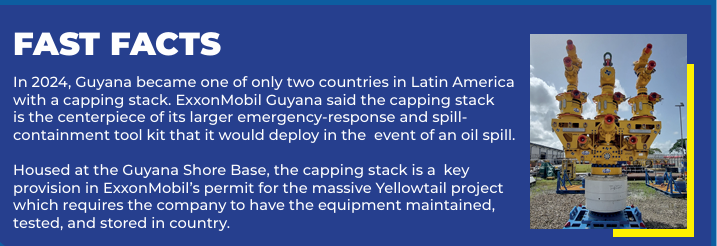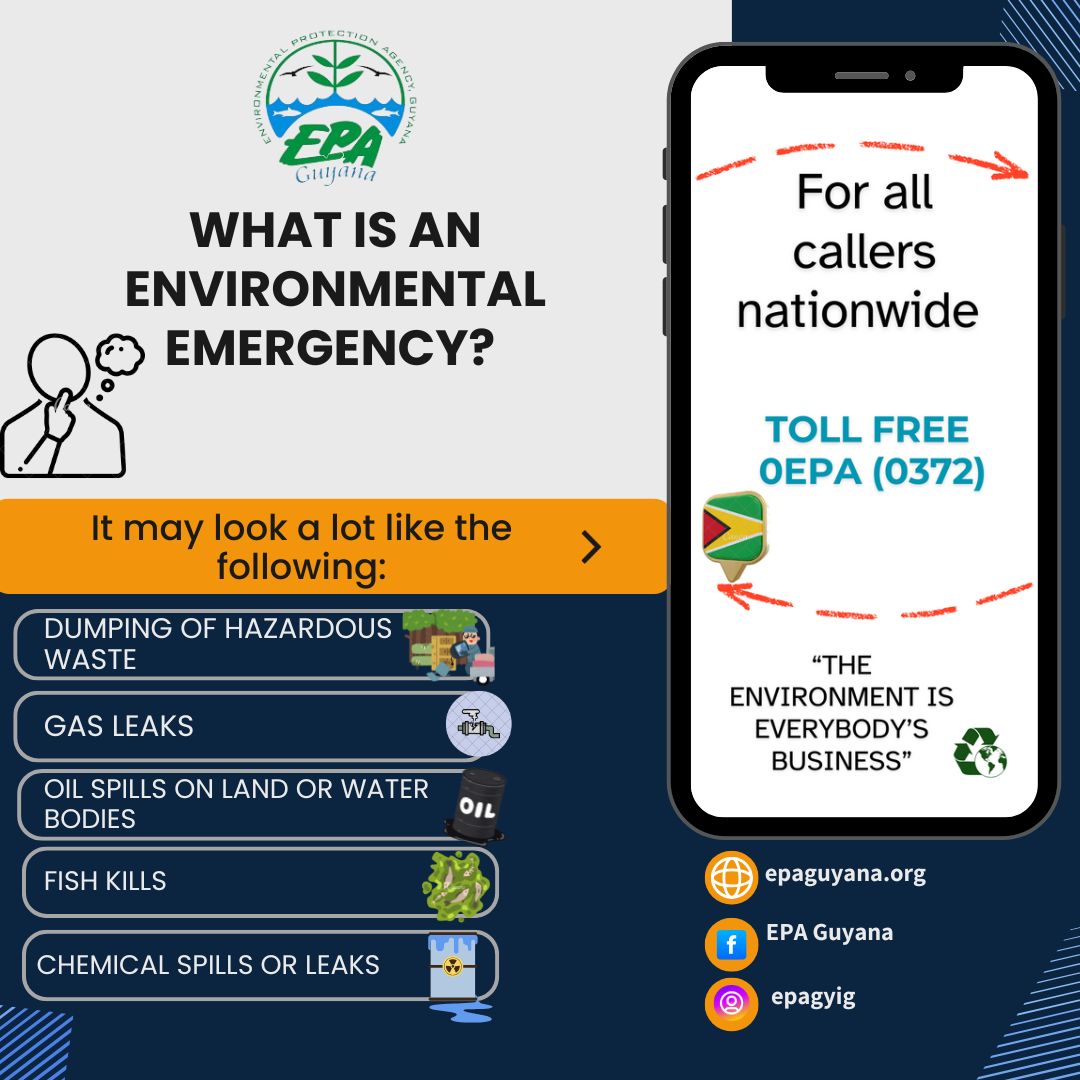By Kemol King
In a significant step toward environmental risk management in the petroleum sector, Guyana’s Parliament passed the Oil Pollution Prevention, Preparedness, Response and Responsibility Bill 2025 in May.
The President assented to the Bill on May 28, thereby establishing a legal framework for preventing oil pollution, coordinating a spill response, and enforcing accountability measures. The Act provides for preventative, restorative, and compensatory measures covering oil spill incidents in Guyana’s national territory. It mandates coordination among state agencies, operators, and international partners while ensuring that those responsible for spills bear the full weight of financial, legal, and environmental obligations.
The main components of the legislation are:
1. Designation of a Competent National Authority: The Act designates the Civil Defense Commission (CDC) as the Competent National Authority responsible for supervising oil spill response coordination and impact mitigation. The CDC will receive and disseminate oil spill reports to all stakeholders and oversee the national response architecture.
2. Creation of the National Oil Spill Committee: Within the CDC, a National Oil Spill Committee is to be established. This body will support the authority’s operations and provide strategic guidance on planning and executing oil spill responses.
3. Incident Command Structure Defined: The Director General of the CDC is designated as the National Incident Commander, holding responsibility for the management and coordination of oil spill response efforts. The Deputy Incident Commander role is assigned based on location:
• Offshore spills – Director of the Maritime Administration Department
• Onshore spills – CEO of the Guyana Energy Agency
The Deputy Commander is responsible for activating the relevant operations center and ensuring effective on-scene command.
4. Role of Foreign Affairs in International Response: For oil spill incidents that cross borders or involve foreign vessels, the Minister of Foreign Affairs is responsible, alongside the competent authority and relevant agencies, for coordinating the international emergency response in keeping with Guyana’s international obligations.
5. National Oil Spill Contingency Plan Required: The CDC is mandated to develop, prepare, and publish a National Oil Spill Contingency Plan. This document will guide coordination and response operations in the event of oil spill incidents or threats of such incidents.
6. Prompt Notification and Public Disclosure Responsible: parties must promptly notify the competent authority in writing when an oil spill occurs or is discovered. The competent authority, in turn, must ensure that information about the incident is made publicly available, to the extent practicable.
7. Environmental Restoration Mandate: Once oil removal operations are complete, the Environmental Protection Agency (EPA) is empowered to direct the responsible party to implement actions for restoring the affected environment. Such actions must comply with the Environmental Protection Act.
8. Liability for Damages and Restoration: Responsible parties are liable for all damages arising from an oil spill, including removal costs and environmental restoration. The Act ensures far-reaching and comprehensive financial and remedial obligations.
9. Claims and Board of Inquiry: Affected persons may file claims within one year of discovering the incident or the damage they suffered due to the incident. The new legislation allows for the establishment of an Oil Spill Incident Board of Inquiry composed of nominees from the Ministry of Natural Resources, the EPA, and the responsible party.
10. Financial Assurance Obligations: Responsible parties must maintain and present proof of financial assurance to the satisfaction of the competent national authority, demonstrating their capacity to cover removal, restoration, and compensation costs.
11. Penalties for Non-compliance: Penalties are outlined for several offenses, including:
• Failure to notify the competent authority
• Failure to submit required plans, reports, or records
• Failure to provide financial assurance.
In serious cases, penalties include imprisonment for a minimum of three years. Administrative penalties include suspension of licenses and vessel clearances. Where a body corporate is involved, the company and culpable officers may be liable.
This Act marks a key shift toward stronger environmental safeguards and stricter corporate accountability in the oil and gas industry. It adds to the capping stack, which is in-country and is part of a wider subscription service available to respond in the event of a spill.









